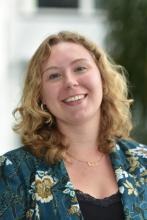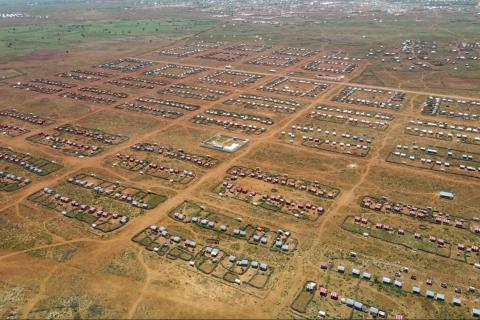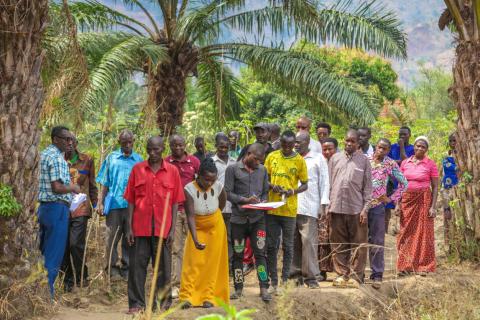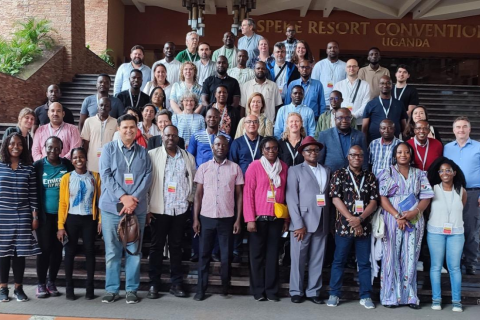
Topics and Regions
Programme advisor at RVO for the LAND-at-scale programme
Details
Affiliation:
Location
Contributions
Displaying 21 - 25 of 25LAND-at-scale Colombia- Land formalization through a Fit for Purpose approach in Indigenous and Afro-Colombian
General
In Colombia’s post-conflict context, access to land and tenure security are still a cause of many conflicts and inequalities. Especially Indigenous and Afro-Colombian communities are amongst the most vulnerable groups in Colombia. Their land tenure insecurity has a negative effect on the possibilities for livelihood improvements, and on the protection of natural resources within their territories. Project objective The project aims to contribute to filling the Multipurpose cadastre with information about land titles and natural resources of indigenous and Afro-Colombian communities, which is obtained in a fair, efficient and effective manner, and to create security for the communities to invest in sustainable income generating activities in those areas. Combining improved tenure security with income generating activities and protecting natural resources results in an integrated approach, tackling multiple issues at the same time. Project strategies - Improved tenure security through mapping 3 different communities using the Fit for Purpose method - Mapping possible income generating activities together with the communities and looking for external financing - Mapping natural resources together with the communities: how to protect or use them sustainably - Share this integrated approach with government, donors, financial institutions throughout the project in order to guarantee upscaling and to improve the Multi-purpose Cadastre
LAND-at-scale Uganda - Scaling up community-based land registration and land use planning on customary land
Uganda wants to transform from a predominantly low-income agricultural economy to a modern and prosperous country in 2040. Land is widely recognized as a pivotal element of Uganda’s economic and social transformation, as evidenced by the government ambition to improve tenure security, and systematically title all land by 2040. For this purpose, a modern legal framework for land governance has been created. Until now, implementation of the existing law and policy to improve tenure security of customary land in a way that is accessible at a low cost, context sensitive and flexible is limited. Meanwhile, the urgency is growing as Uganda’s population is increasing rapidly, creating increasing pressure on land and an associated increasing number of land related disputes. Also, productivity of land in Uganda is lagging and land use needs to become more climate change resilient.
Therefore, the project aims to contribute to the development of a structured and scalable approach towards improved tenure security and sustainable land use for men, women and youth on customary land, which is obtained using fit-for-purpose and participatory tools and approaches.
The specific objectives are:
1. Improved tenure security for men, women and youth.
2. Inclusive, climate smart and sustainable land use planning.
3. Improved capacities and awareness of key land stakeholders on customary land registration and land use planning.
LAND-at-scale Somalia: Saameynta – Scaling-up Solutions to Displacement in Somalia
General
Somalia has over 2.9 million Internally Displaced People (IDPs) following decades of civil war and violent conflict. In addition, a significant increase of droughts and floods due to climate change have forced people away from their rural homes. Most IDPs have relocated in Somalia’s cities which has resulted in rapid urbanization, unplanned city development, and a speculation in land markets. This situation has spurred continuous displacements and forced evictions of IDPs, preventing them from building a sustainable livelihood. This LAND-at-scale project, funded jointly with the Swiss Development Cooperation (SDC), aims to contribute to a sustainable integration of IDPs in three Somali cities. Local governments, IDPs as well as host communities will be supported to contribute to a process of inclusive urban development and to apply land value capture for infrastructure development and basic services. Specifically for land governance strengthening, project strategies include:? Strengthening (technical and institutional) capacities of local authorities to address urban displacement and capacities of IDPs to participate in processes of inclusive urban development? Improving tenure security for IDPs to reduce risks of displacements and forced evictions? Enhancing the institutional framework within the three target cities to apply a land value capture approach.
LAND-at-scale Burundi: Amahoro at Scale – An integrated approach towards improved tenure security and land gov
General
Burundi has the world’s highest hunger score and around 45 percent of the population is affected by food insecurity. The country copes with increasing scarcity of land as a result of increasing population size, returnees and IDPs and climate change. With the majority of Burundians depending on agriculture for their food and livelihoods, land scarcity makes this reliance on agriculture precarious. This pressure on land causes elevated levels of land disputes with over 55% of all court cases being related to conflicts over land. The results of these disputes are often highly uncertain, as land is commonly not registered and no good documentation of ownership or use rights exists. ZOA has successfully implemented Land Tenure Registration projects in the Makamba-province, but the sustainability of the local land offices (SFCs) remains an issue, as well as guaranteeing gender equality in land governance.The objective of this LAND-at-scale project is to improve tenure security of women and men, conflict resolution and to create the basis for improved agricultural production, access to justice and sustainable, climate smart agri-businesses. This will be done through the following project strategies: 1) Implementing the land tenure registration approach in Nyanza Lac through the operationalization of the SFCs. 2) Ensuring local land conflict resolution mechanisms can effectively resolve land conflicts in Nyanza Lac. 3) Developing a business case that will result in the rollout of (financially) sustainable SFCs at national level, which is validated through multistakeholder engagements.
LAND-at-scale Knowledge Management for Equitable and Sustainable Land Governance: Supporting the LAND-at-scale
General
Knowledge management (KM) and learning are at the heart of the LAND-at-scale programme. The Netherlands Enterprise Agency (RVO) in partnership with a broad scala of knowledge partners including LANDac, Royal Tropical Intitute (KIT), the International Land Coalition (ILC), Land Portal and many more will collaborate to implement the knowledge management (KM) component of the program.
Through LAND-at-scale's country-projects, the aim is to achieve just, inclusive and sustainable land governance at scale and in a sustainable way. With an integrated KM-strategy, LAND-at-scale aims to achieve maximum impact of each project, as well as contribute to gaining a deeper understanding of the conditions required to create structural change. Exchanges across partners is a core element of the strategy, but also linking them to academic partners to fill in knowledge gaps and uncover more along the way.
Check the publications below to see all the insights so far, and want to get in contact? Email us via landatscale@rvo.nl
To follow our most recent work, make sure to follow us on LinkedIn: LAND-at-scale programme: Posts | LinkedIn or subscribe to our quarterly LAND-at-scale newsletter






